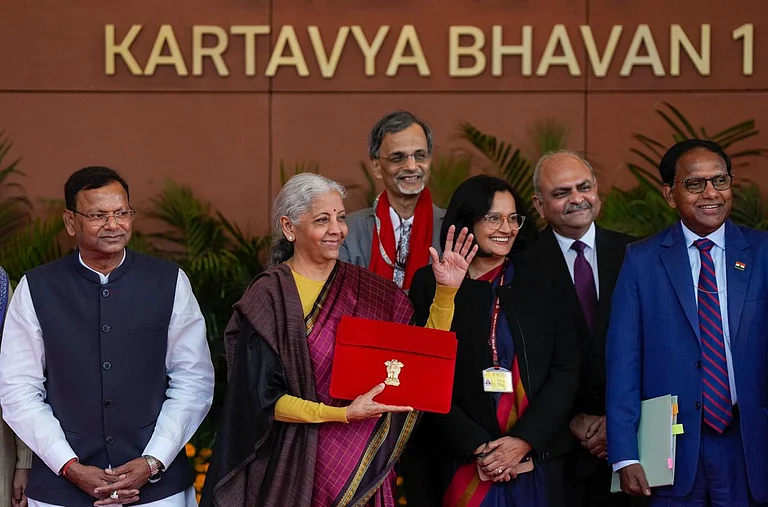India stands at a pivotal moment in its economic journey. In 2025, India’s evolving tax landscape is expected to play a decisive role in shaping its attractiveness as a foreign investment destination. From groundbreaking reforms to strategic incentives, the upcoming Union Budget 2025 promises to further simplify tax laws, creating an even more favorable environment for foreign investors.
A Pro-Business Tax Regime
In recent years, India has undertaken sweeping reforms to simplify and modernize its tax system. A landmark change was the reduction in corporate tax rates to 15% for new manufacturing units, while other corporations are taxed at 22%, well below the earlier 30%. Also, interest on foreign borrowings raised by Indian corporates have been subjected to a low tax rate. Some of these fiscal moves have contributed to foreign inflows of ~USD 71 billion (including debt investments)in financial year 2023-24.
India has established tax treaties with numerous countries, offering foreign investors specific benefits, provided certain conditions are met. Over recent years, Indian tax courts have delivered a series of rulings that have clarified the principles governing the eligibility for tax treaty benefits. These judicial decisions have played a crucial role in enhancing the predictability and consistency of tax treatment for foreign investments.
The government has introduced transformative measures to further boost investment. The abolition of angel tax on share issuances above fair market value and the reduction in long-term capital gains tax rates from 20% to 12.5% have stimulated equity markets.
GIFT City (Gujarat International Finance Tec-City) has emerged as a preferred destination for offshore funds and financial institutions, offering a tax holiday of up to 10 years. Additionally, Production-Linked Incentive (PLI) schemes have catalyzed growth in high-priority sectors such as pharmaceuticals, electronics, and automotive manufacturing.
The Union Budget 2025 is expected to continue this trajectory with further simplification of corporate tax laws, including rationalization of exemptions and deductions. These changes aim to enhance predictability, reduce litigation, and provide a clear roadmap for businesses.
Union Budget 2025
The Budget is set to introduce comprehensive measures aimed at simplifying tax compliance for both domestic and foreign investors. Specific measures expected include removing older deductions and exemptions that complicate tax filings while retaining targeted incentives for high-growth sectors.
These changes will simplify taxation for foreign investors, making it easier for global corporations to forecast their effective tax liabilities.
The Government may consider extending the 15% tax regime for new manufacturing set-ups and reducing tax rates on foreign debt investments.
Such reforms could catalyze the growth of manufacturing, aligning with India’s ‘Make in India’ and 'Atmanirbhar Bharat’ initiatives, while encouraging foreign capital inflows into critical infrastructure and industrial projects.
Tax disputes have long been a pain point for foreign investors. The Budget is likely to focus on establishing fast-track tribunals for resolving cross-border tax disputes. The one-time tax dispute settlement scheme (i.e., Vivad Se Vishwas Scheme)is expected to cover a wider array of disputes, including high-stake transfer pricing cases involving multinational enterprises.
Faster dispute resolution will reduce the cost of litigation and enhance India’s reputation as a stable investment destination.
The Goods and Services Tax (GST), while transformative, has faced criticism for compliance complexity. The Budget is expected to address this by replacing the current multi-layered return system with a simplified, consolidated return.
Simplified GST compliance will lower operating costs for foreign businesses, particularly in the manufacturing and retail sectors.
Conclusion: A USD 5 Trillion Vision
As India aims to become a USD 5 trillion economy, its tax policies are pivotal. By fostering transparency, reducing litigation, and offering strategic incentives, the government is laying the foundation for sustained growth.
The Union Budget 2025 is expected to be a game-changer, further simplifying tax compliance and incentivizing investments in emerging sectors. Foreign investors, in turn, should respond with confidence.
In 2025, India isn’t just expected to shape its tax landscape—it may be set to shape its future as a global economic leader.
Punit Shah, Partner and Vishal Lohia, Associate Partner at Dhruva Advisors LLP


























